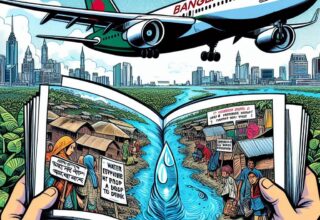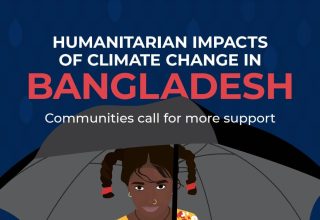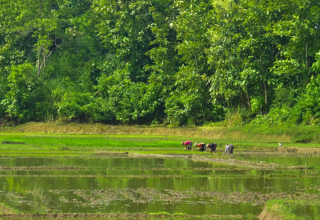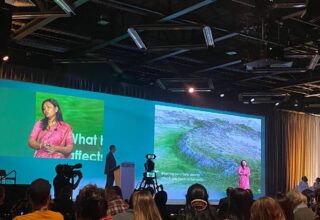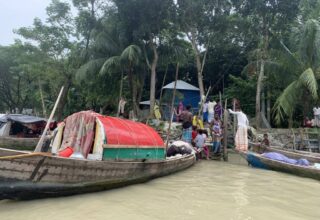Arriving in Dhaka on the eve of Eid-ul-Fitr, my mind was inundated by unknowns. How will my work fit within the centre? Will there be someone to help supervise me and provide me with logistical information? What can I eat other than daal and rice being a vegetarian?
These unknowns quickly surpassed upon meeting everyone at the ICCCAD office. From full-time staff, to interns to fellow visiting researchers, I was warmly greeted and brought up to speed. It is now these same people I consider good friends.
The opportunities and responsibilities I have been afforded as a Visiting Researcher at ICCCAD are unparalleled to anything I have previously experienced at other organisations and institutions. The exposure to high-level conferences and events on such a frequent basis has given me access to discussions that have broadened my knowledge and granted me experiences of how practice is mainstreamed and scaled up at the science-policy interface. In addition, these opportunities have provided me with unique access to network with professionals who lead their respective fields.
Further, the opportunity to engage with researchers and practitioners has enlightened me to the ‘solution space’ which Bangladesh has pioneered and led. In the face of adversity, Bangladesh has refused to stand still, and through the work of ICCCAD, capacity is being built and research is aiding practical solutions to be delivered by practitioners on the ground.
Shidhulai Swanirvar Sangstha, is an NGO located in Natore district, which I was fortunate to have visited. They operate in a remote rural community where children do not have access to a local government school and health clinics are far away. The solution, founder Rezwan initiated, was to adapt local boats into schools, libraries, heath clinics and training centers, where women are taught by agricultural specialists, to plant flood-resistant crops. For me Shidhulai’s simple but ingenious intervention epitomizes the transition Bangladesh has made from the ‘problem space’ to the ‘solution space’. It is now this model that needs to be shared with countries not only in the global South but also in the global North.
It is with a heavy heart that I leave Dhaka, but this is only goodbye for now, and I will have the Eagles’s lyrics to Hotel California; ‘you can check out anytime you like, but you can never leave’, ringing in my ears until I return in the near future.
Written by: Liam Upson, Visiting Researcher – ICCCAD, September 2015

